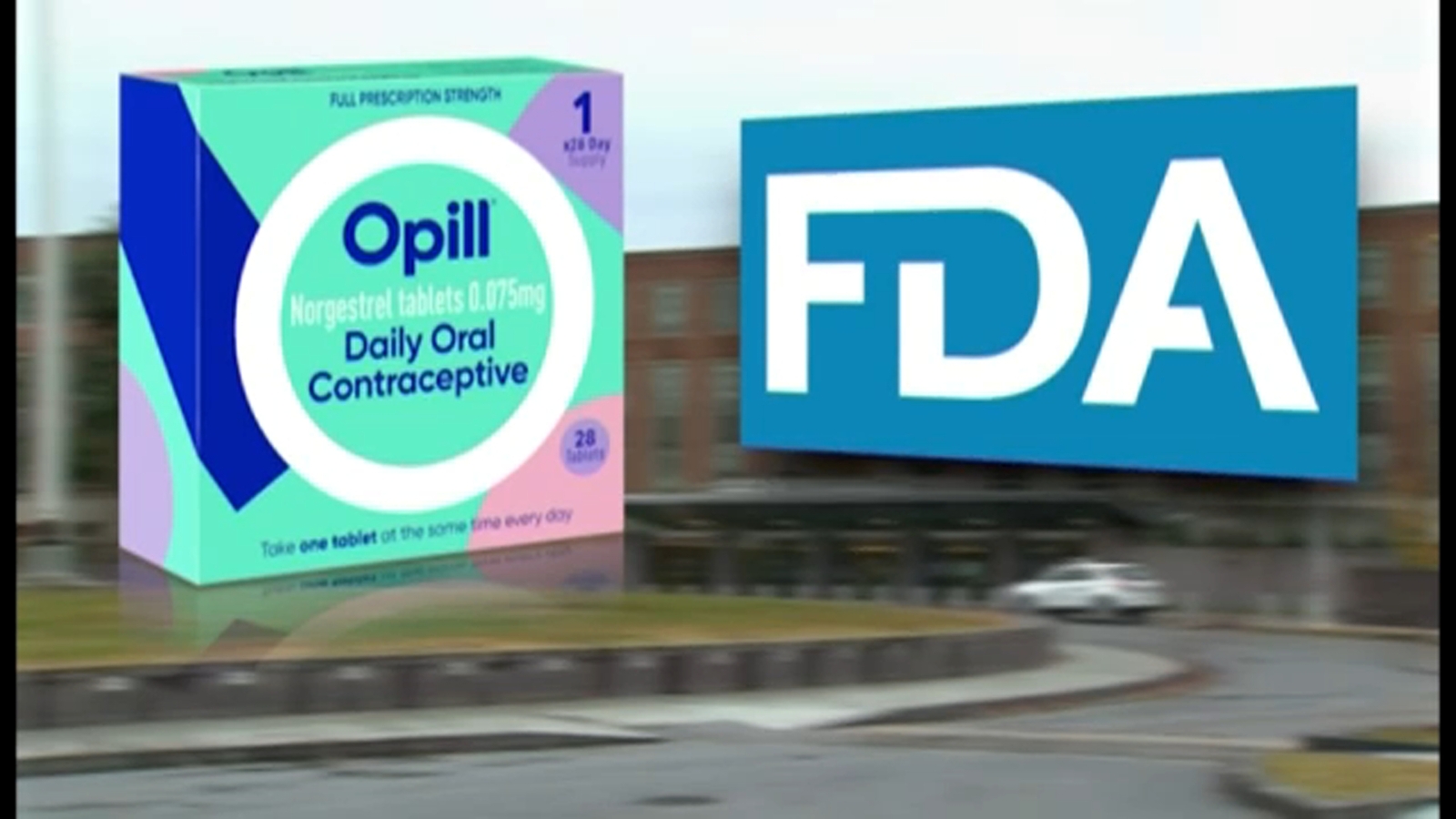Over-the-Counter Birth Control: Increased Access And Its Implications After Roe V Wade

Table of Contents
Increased Access: A Boon for Reproductive Healthcare?
The prospect of over-the-counter birth control offers several potential benefits for reproductive healthcare. Increased access could significantly improve convenience and affordability while addressing existing health disparities.
Improved Convenience and Affordability
Making birth control available over-the-counter would revolutionize access for many.
- Eliminates Doctor's Appointments: No longer would individuals need to schedule appointments, potentially saving time and money associated with doctor visits, co-pays, and transportation. This is particularly beneficial for individuals with busy schedules or limited financial resources. This ease of access to birth control directly impacts the convenience factor for users.
- Lower Overall Costs: The elimination of physician visits and prescription fees could dramatically reduce the overall cost of birth control, making it more accessible to low-income individuals and families. The financial barrier to accessing affordable birth control is significantly reduced.
- Improved Rural Access: Individuals in rural areas or those facing transportation challenges would experience a significant improvement in access. Over-the-counter availability eliminates the need to travel long distances to see a healthcare provider for a prescription. This is especially important for expanding birth control access in underserved communities.
- Increased Privacy: Purchasing birth control over-the-counter provides increased privacy, eliminating the need for personal discussions with healthcare providers about sensitive reproductive health matters. This aspect contributes to a more comfortable and private experience for many individuals seeking birth control.
Addressing Health Disparities
Over-the-counter birth control holds the potential to significantly reduce health disparities in access to reproductive healthcare.
- Improved Access for Marginalized Communities: Many marginalized communities face systemic barriers to accessing healthcare, including cost, transportation, and cultural factors. Over-the-counter availability could help level the playing field and promote health equity. Access to birth control becomes less dependent on socioeconomic status or geographic location.
- Reduced Provider Bias: The reliance on healthcare providers for birth control prescriptions can sometimes lead to biased treatment based on personal beliefs. Over-the-counter access eliminates this potential barrier. The unbiased availability of over-the-counter birth control is a key benefit.
- Increased Usage Among Underserved Populations: Increased accessibility could lead to higher rates of contraceptive use among populations who currently have limited access, ultimately improving reproductive health outcomes. Wider access and utilization of over-the-counter birth control can lead to better health outcomes.
- Equitable Distribution and Education: However, the success of over-the-counter birth control in addressing health disparities hinges on equitable distribution and comprehensive public health education campaigns to ensure everyone understands how to use it safely and effectively.
Potential Concerns and Challenges
While increased access to over-the-counter birth control offers many advantages, potential concerns and challenges warrant careful consideration.
Misinformation and Self-Medication
The lack of personalized medical guidance raises concerns about potential misuse.
- Risk of Improper Use: Without a healthcare provider's guidance, individuals may use birth control incorrectly, reducing its effectiveness and potentially leading to unintended pregnancies. Proper education and clear instructions are paramount for safe and effective usage.
- Importance of Public Health Campaigns: Robust public health campaigns providing accurate information about proper usage, potential side effects, and contraindications are essential to mitigate the risks associated with self-medication. Clear communication about the safe use of over-the-counter birth control is critical.
- Medication Interactions: Over-the-counter birth control could interact negatively with other medications if not properly screened. Clear labeling and readily accessible information about potential interactions is necessary. Emphasis on understanding potential drug interactions is key to responsible use.
- Clear Labeling and Instructions: Clear, concise, and easily understandable labeling and instructions are vital to ensuring safe and effective use. Simple and straightforward packaging design and instructions are needed for ease of understanding.
Impact on Healthcare Providers
The shift to over-the-counter birth control could significantly impact the role of healthcare providers.
- Shifting Roles: Healthcare providers may see a shift in their role, potentially focusing more on managing complications or providing comprehensive reproductive healthcare services beyond basic birth control prescription. Their focus might shift towards more complex reproductive health issues.
- Increased Educational Needs: Healthcare providers will require ongoing education and resources to support patients using over-the-counter birth control, addressing questions and concerns, and managing any complications. Training on patient counseling about over-the-counter birth control is essential.
- Potential Revenue Reduction: Some healthcare providers might experience a reduction in revenue as a result of fewer prescription birth control services. The economic impact of this shift on healthcare providers needs to be addressed.
- Ensuring Comprehensive Healthcare Access: Strategies must be implemented to ensure that individuals continue to have access to comprehensive reproductive healthcare services, including counseling and management of complications. Access to comprehensive reproductive healthcare must remain a priority.
The Role of Government Regulation and Education
Government regulation and public health education are crucial for the successful implementation of over-the-counter birth control.
- Clear Guidelines and Regulations: The government must establish clear guidelines and regulations to ensure the safe and effective use of over-the-counter birth control, including labeling requirements, quality control, and potential contraindications. Stringent regulatory oversight of over-the-counter birth control is needed.
- Comprehensive Sex Education: Comprehensive sex education programs in schools and communities are crucial to promote responsible contraceptive use and decision-making. Sex education plays a crucial role in responsible birth control usage.
- Public Awareness Campaigns: Public awareness campaigns can help mitigate risks associated with self-medication by providing accurate information about different methods, potential side effects, and responsible use. Public health campaigns about responsible contraceptive use are vital.
- Government Funding: Government funding for education programs, access initiatives, and public awareness campaigns is vital to ensure equitable access and safe usage. Financial investment in public health initiatives is crucial for the success of over-the-counter birth control access.
Conclusion
The shift towards over-the-counter birth control presents both significant opportunities and considerable challenges. While increased accessibility promises to improve reproductive health outcomes and address existing disparities, careful consideration must be given to mitigating risks associated with self-medication and ensuring equitable access for all. Effective government regulation, comprehensive public health campaigns, and continued access to comprehensive reproductive healthcare are essential to maximize the benefits and minimize potential harms. The future of reproductive freedom hinges, in part, on the successful implementation of over-the-counter birth control access and a commitment to responsible education and support. Learn more about accessing over-the-counter birth control options in your area and advocate for policies that promote safe and equitable access to reproductive healthcare.

Featured Posts
-
 Us China Trade Talks Market Reaction Will Determine Success
May 12, 2025
Us China Trade Talks Market Reaction Will Determine Success
May 12, 2025 -
 Public Opinion Jeff Bezos James Bond Poll And Its Surprising Outcome
May 12, 2025
Public Opinion Jeff Bezos James Bond Poll And Its Surprising Outcome
May 12, 2025 -
 Smith Mountain Lake Bass Fishing Tournament B And W Trailer Hitches Heavy Hitters All Star Event 100 K Payday
May 12, 2025
Smith Mountain Lake Bass Fishing Tournament B And W Trailer Hitches Heavy Hitters All Star Event 100 K Payday
May 12, 2025 -
 Loanees Bid For Celtics Championship Key Updates
May 12, 2025
Loanees Bid For Celtics Championship Key Updates
May 12, 2025 -
 Ver En Vivo Uruguay Vs Colombia Sudamericano Sub 20 Online
May 12, 2025
Ver En Vivo Uruguay Vs Colombia Sudamericano Sub 20 Online
May 12, 2025
